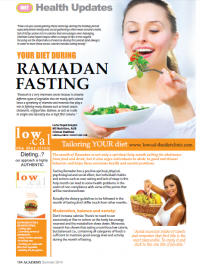Skin food
PDF :
Skin food
The secret to healthier hair and glowing skin? It's not in your makeup case; it’s in your DIET.
Nutrients for healthy skin:
Power of vitamins, minerals, and other nutrients to give skin a
more radiant, healthy, and youthful glow?
“There is a lot of important new research showing tremendous power of antioxidants in general, and in some specific nutrients in particular that can make an important difference in the way your skin looks, feels and even in how well it ages."
Signs of Wrinkles and Aging?
Vitamin C and E help by reducing the damage caused by free radicals, a harmful byproduct of sunlight, smoke, and pollution. Free radicals gobble up collagen and elastin, the fibers that support skin structure, causing wrinkles and other signs of aging
To make sure your diet includes plenty of vitamin C, eat citrus fruits and vegetables rich in vitamin C such as bell peppers, broccoli, cauliflower, and leafy greens. An important mineral is copper. Together with vitamin C and the mineral zinc, copper helps to develop elastin, the fibers that support skin structure from underneath. You can find vitamin E in vegetable oils, nuts, seeds, olives, spinach, and asparagus.
Acne problems
The mineral zinc is important if you have acne. In fact, sometimes acne itself is a symptom of a zinc deficiency. Taken internally
or used topically, zinc works to clear skin by taming oil production and may be effective in controlling the formation of acne lesions or help those already on your skin to clear sooner. Food sources of zinc include oysters, lean meat, and poultry. Vitamin A is necessary for the maintenance and repair of skin tissue. Without it, you'll notice the difference. Fruits and vegetables are loaded with vitamin A. If you’re deficient in vitamin A you’re likely to see some skin-related symptoms, including a dry, flaky skin texture. In another study published in the British Journal of Dermatology, doctors found that foods high in beta-carotene, a form of vitamin A appeared to reduce the risk of psoriasis.
Psoriasis is a common skin condition that causes skin redness and irritation. Most persons with psoriasis have thick, red skin with flaky, silver-white patches called scales.
Skin Hydration and Soothing:
When it comes to skin, the single most important B vitamin is biotin, a nutrient that forms the basis of skin, nail, and hair cells. Without adequate amounts, you may end up with dermatitis (an itchy, scaly skin reaction) or sometimes even hair loss. Even a
mild deficiency causes symptoms. It's found in many foods including bananas, eggs, oatmeal, and rice, plus your body also
makes some biotin on its own. Niacin, a specific B vitamin, helps skin retain moisture. Niacin also has anti-inflammatory properties to soothe dry, irritated skin. In higher concentrations it can also work as a lightening agent to even out blotchy skin tone.
Skin cancer:
A number of scientists believe that the mineral selenium plays a key role in skin cancer prevention. Taken in supplement form or
used in a cream, this mineral helps protect skin from sun damage. If you do spend any time in the sun, selenium could help reduce your chance of burning. In studies in The Journal of the American Medical Association in 1996, researchers showed that skin cancer patients who ingested 200 micrograms of selenium per day had:
•37% fewer malignancies
•50% reduced risk of death from skin cancer
•17% decrease in overall mortality
The best dietary sources of selenium include whole-grain cereals, seafood, garlic, and eggs.
Essential Fatty Acids (EFAs).
If your skin is dry, prone to inflammation, and frequently dotted with white heads and black heads, you may be lacking essential fatty acids, nutrients that are crucial to the production of skin's natural oil barrier. Without an adequate supply of EFAs, the skin produces a more irritating form of sebum, or oil, which can result in problems. The solution may be to balance two of the key EFAs, omega-3 and omega-6. While most get plenty of omega-6s (in baked goods, cooking oils, poultry, grains, and many other foods), omega-3s are often lacking. They're found mostly in cold-water fish, including salmon, sardines, and mackerel, flaxseed, and flax and safflower oils. Taking supplements, such as fish oil capsules or evening primrose oil, may also help keep your skin smoother and younger-looking.
Dehydrated skin?
Dry skin is due partly to lack of water. Drinking water in adequate amounts is necessary to flush out toxins out of the body via the excretory system. With inadequate amounts of water flowing through the body, these toxins can build up in the body and escape through skin pores. This contributes to acne.
Drink at least 8 cups of water a day to replenish your body and organs.
Anti-Aging Beef-pasta salad
Serves one person (400 kcal)
Ingredients:
Iceberg leaves
2 pieces of fresh mushroom
6 tomato cherry
1 cup penne pasta
3 slices green pepper
60 grams beef
Sprinkle with basil leaves
Dressing:
1 tablespoon balsamic vinegar
1 teaspoon olive oil
This salad is rich in:
•Vitamin A which reduces wrinkles and acts as anti-acne
•Vitamin C which is an antioxidant,
•Niacin which acts as skin moisturizer.
Skin Repair and Regeneration salad
Serves 1 person (470kcal)
Ingredients:
100 grams steamed broccoli
50 grams leek
Lettuce leaves
1 carrot
70 grams tuna canned in water
90 grams potato
5 tomato cherry
Dressing:
1 tablespoon balsamic vinegar
1 teaspoon olive oil
1 teaspoon mustard
This salad is rich in:
•Vitamin A
•Zinc
•Niacin
Youth refreshing salad
Serves 1 person (270kcal)
Ingredients:
50 grams avocado
50 grams mango
Lettuce leaves
15 grams beets
60 grams chicken
Dressing:
2 tablespoons lemon juice1 teaspoon olive oil
1 teaspoon mustard
1 teaspoon honey
2 teaspoons vinegar
This salad is rich in:
•Vitamin A
•Vitamin C
•Zinc
•B vitamins
List of food items and vitamins:
Vitamin A
•Sweet potatoes
•Carrots
•Cabbage
•Pumpkin
•Spinach
•Peppers
•Apricots
•Mango
•Orange-fleshed melon
•Liver
•Eggs
Vitamin E
•Wheat germ
•Almonds
•Hazelnuts
•Peanuts
•Pistachio nuts
•Soya beans
•Sunflower seeds
•Safflower oil
•Canola oil
Niacin
•Eggs
•Meat, fish and poultry
•Whole grains enriched bread andcereals
•Seeds and legumes
•Nuts
•milk
Folate
•Green veggies(spinach, brussel sprouts)
•Legumes
•Citrus fruit
"Your skin is the fingerprint of what is going on inside your body”
Vitamin C
•Citrus fruits
•Broccoli
•Green peppers
















